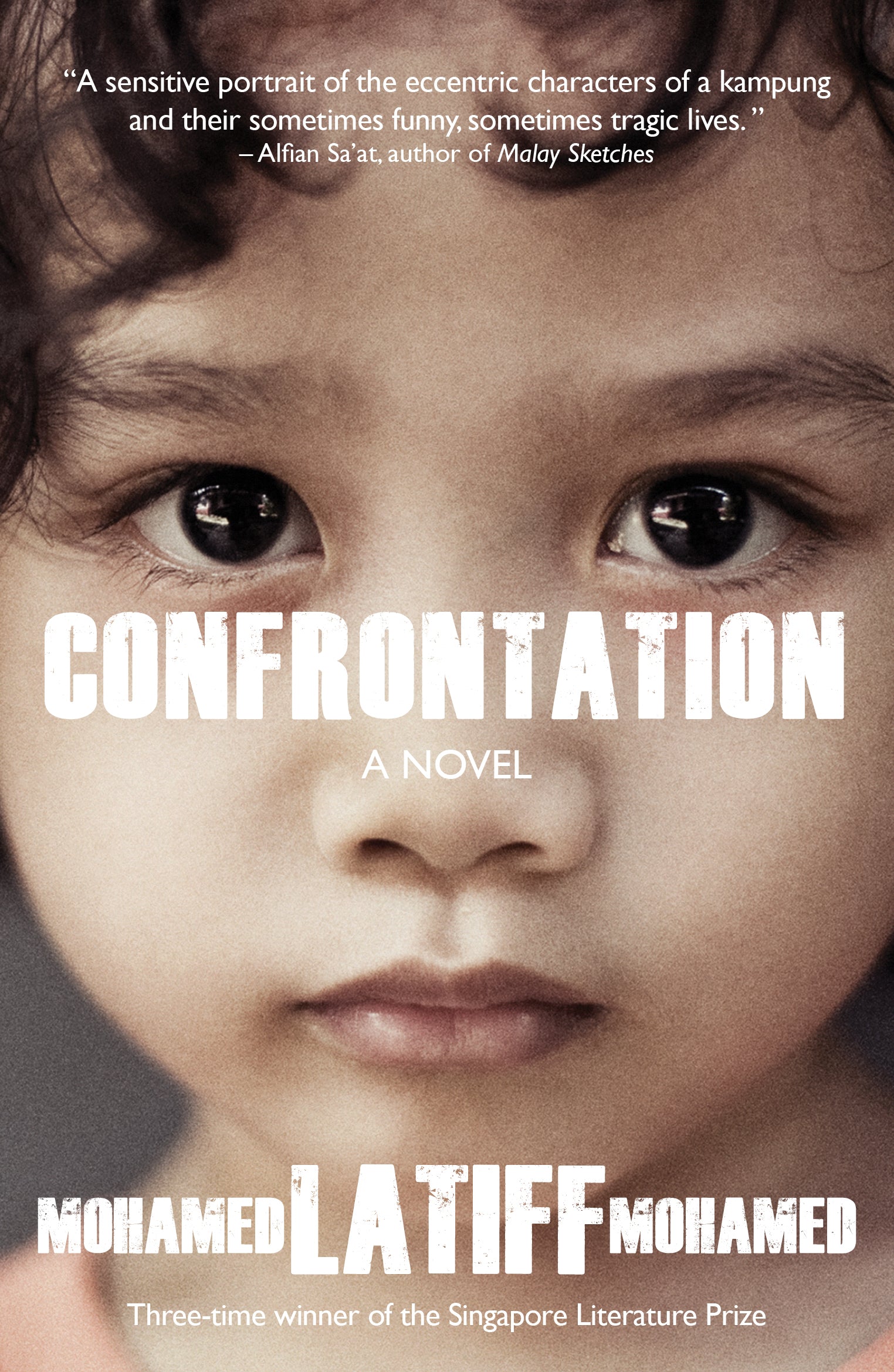
- Description
- Praise
- About the Author
-
Selected by The Business Times as one of the Best Books of 2013
Translated from the Malay by Shaffiq Selamat
Look inside the book I Get the E-book
Adi loves his life in the kampung: climbing the ancient banyan tree, watching ten-cent movies with his friends, fetching worms for the village bomoh. The residents of Kampung Pak Buyung may not have many material goods, but their simple lives are happy. However, looming on the horizon are political upheaval, race riots, gang wars and the Konfrontasi with Indonesia.
Mohamed Latiff Mohamed, three-time winner of the Singapore Literature Prize, brilliantly dramatises the period of uncertainty and change in the years leading up to Singapore’s merger with Malaya. Seen through the unique perspective of the young Malay boy Adi, this fundamental period in Singaporean history is brought to life with masterful empathy. In the tradition of Ben Okri’s The Famished Road and Anita Desai’s The Village By the Sea, Confrontation is an incredible evocation of village life and of the consequences that come from political alignment and re-alignment.
Translated for the first time into English from the Malay.
-
“The book charms immediately with prose in the vein of the idyllic village stories of Indian writer R. K. Narayan, written in the 1940s. Like Narayan, Mohamed Latiff can turn the backbreaking labour of fetching water from a well into a lyrical adventure. [...] For non-Malay readers, Confrontation is an engrossing exploration of history from a different perspective, as it makes readers share Adi’s dawning awareness of his family’s social position and then his heady delight at the notion of a state where everyone will speak his language. Even for readers who know what happened next, the ending of the book comes as a shock, followed by a strong urge to read more from this disarmingly powerful voice.”
—Akshita Nanda, The Straits Times“Confrontation is a ‘must-read’ for anyone keen to experience the anxiety and loss of the Malay community leading up to the separation of Singapore from Malaysia. Latiff’s deep exploration of shattered dreams and alienation in one’s own land recalls a time and place that no longer exists, with characters who are indelibly memorable.”
—Isa Kamari, Cultural Medallion recipient and author of The Tower“Much thought has gone into the book’s design, particularly the cover and the illustrations within. It has one of the most arresting covers I have seen in a long time”
—Siti Nuraishah Ahmad, Asiatic IIUM Journal of English Language and Literature“Mohamed Latiff Mohamed has whipped up a sense of nostalgia towards something that should not have been gone. He succeeds in presenting lost time just as writers such as Kipling succeeded in representing an exotic world.”
—Professor Emeritus Dr Budi Darma, Surabaya State University“He is a writer committed to concrete and moral realism, yet very pronounced in playing with the imageries of satire and symbolism so as to create a literature worthy to be named as emblematic of human conscience against dehumanization. His commitment to address the community’s spiritual, psychological, historical and moral needs is undisputed. To acknowledge this is the start of recognising a literature to build humanity, and Latiff is surely one of its master builders.”
—Dr Azhar Ibrahim Alwee, National University of Singapore“To be reminded that history should be understood via multiple perspectives, move on to the excellent Confrontation by Mohamed Latiff Mohamed...An account of kampung life in 1960s Singapore, Confrontation is an eye-opening account of life from the minority perspective. Schoolboy Adi is not expected to aspire to be a doctor or engineer, until the proposed merger with Malaysia puts him and his command of the Malay language at an advantage...[a] young lad whose search for identity mirrors the confusion in the country at the time.”
—Akshita Nanda, ‘10 Singapore stories to ponder’, The Straits Times“Readers in English have begun to discover him, thanks to Confrontation, a 2013 translation of his novel, Batas Langit (1996), from Epigram Books...Confrontation is the story of a young kampung dweller in the 1960s whose world changes because of the proposed merger of Singapore and Malaysia. It captures the struggle to survive in those days and the rifts and links between different communities. Long looked down on for being Malay, the protagonist Adi finds himself suddenly fashionable during the days when merger is in the air and speaking Malay is a passport to a white-collar, financially secure future - a future that never materialised and echoes some of Latiff's own experiences.”
—Akshita Nanda, ‘'Singapore is still my home'’, The Sunday Times“Singapore in the turbulent '60s is evoked through a narrative pungent with details—of communal wells, leaky zinc roofs and kerosene lamps. Mohamed Latiff Mohamed trains his sensitive and painterly prose on the eccentric characters of Kampung Pak Buyung and their sometimes funny, sometimes tragic lives.”
—Alfian Sa’at, Resident Playwright with W!LD RICE and author of Malay Sketches -
Mohamed Latiff Mohamed is one of the most prolific writers to come after the first generation of writers in the Singapore Malay literary scene. His many accolades include the Montblanc-NUS Centre for the Arts Literary Award (1998), the SEA Write award (2002), the Tun Seri Lanang Award, Malay Language Council Singapore, Ministry of Communication, Information and Arts (2003), the National Arts Council Special Recognition Award (2009), the Cultural Medallion (2013), and the Singapore Literature Prize in 2004, 2006 and 2008. His works revolve around the life and struggles of the Malay community in post-independence Singapore, and have been translated into Chinese, English, German and Korean.
The original Malay edition of Confrontation, titled Batas Langit, was awarded Consolation Prize in 1999 for the Malay Literary Award organised by Singapore Malay Language Council, and selected in 2005 for the READ! Singapore nationwide reading initiative organised by National Library Board.
Cover Type: Paperback
Page Count: 224
Year Published: 2019
Size: 198mm x 129mm
